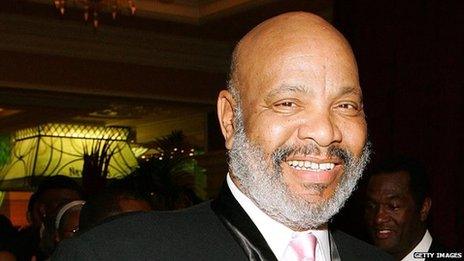Fresh Prince star Alfonso Ribeiro withdraws Fortnite lawsuit
- Published
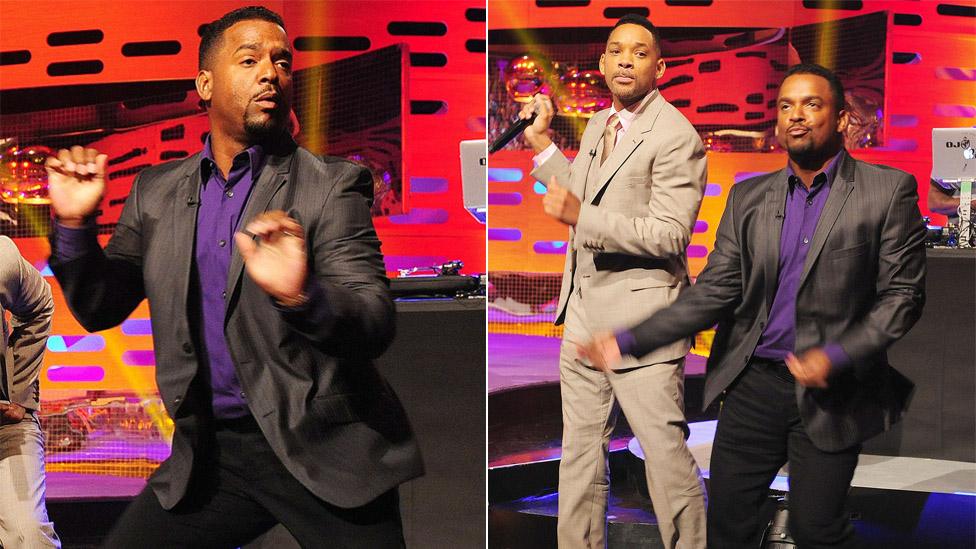
Alfonso Ribeiro showing off his moves with former co-star Will Smith
The Fresh Prince of Bel-Air star Alfonso Ribeiro has temporarily dropped his legal action against Fortnite's creators Epic Games, for copying his character's dance moves.
The actor also withdrew a similar suit against Take-Two Interactive, creators of the basketball game series, NBA 2K.
Ribeiro's case was weakened when the US Copyright Office refused to register his "Carlton dance" routine., external
Ribeiro's lawyer said his client intends to refile the lawsuits.
What is the "Carlton dance"?
The dance was made famous by Ribeiro's character Carlton Banks in the hit 1990s sitcom, starring Will Smith.
Ribeiro famously performed the moves to Tom Jones's It's Not Unusual, and continues to do it for fans.
Allow YouTube content?
This article contains content provided by Google YouTube. We ask for your permission before anything is loaded, as they may be using cookies and other technologies. You may want to read Google’s cookie policy, external and privacy policy, external before accepting. To view this content choose ‘accept and continue’.

Ribeiro had claimed Epic Games and Take-Two Interactive unfairly profited from his "creative expression, likeness and celebrity".
However, the suits received a serious blow when US officials denied Ribeiro copyright of the dance.
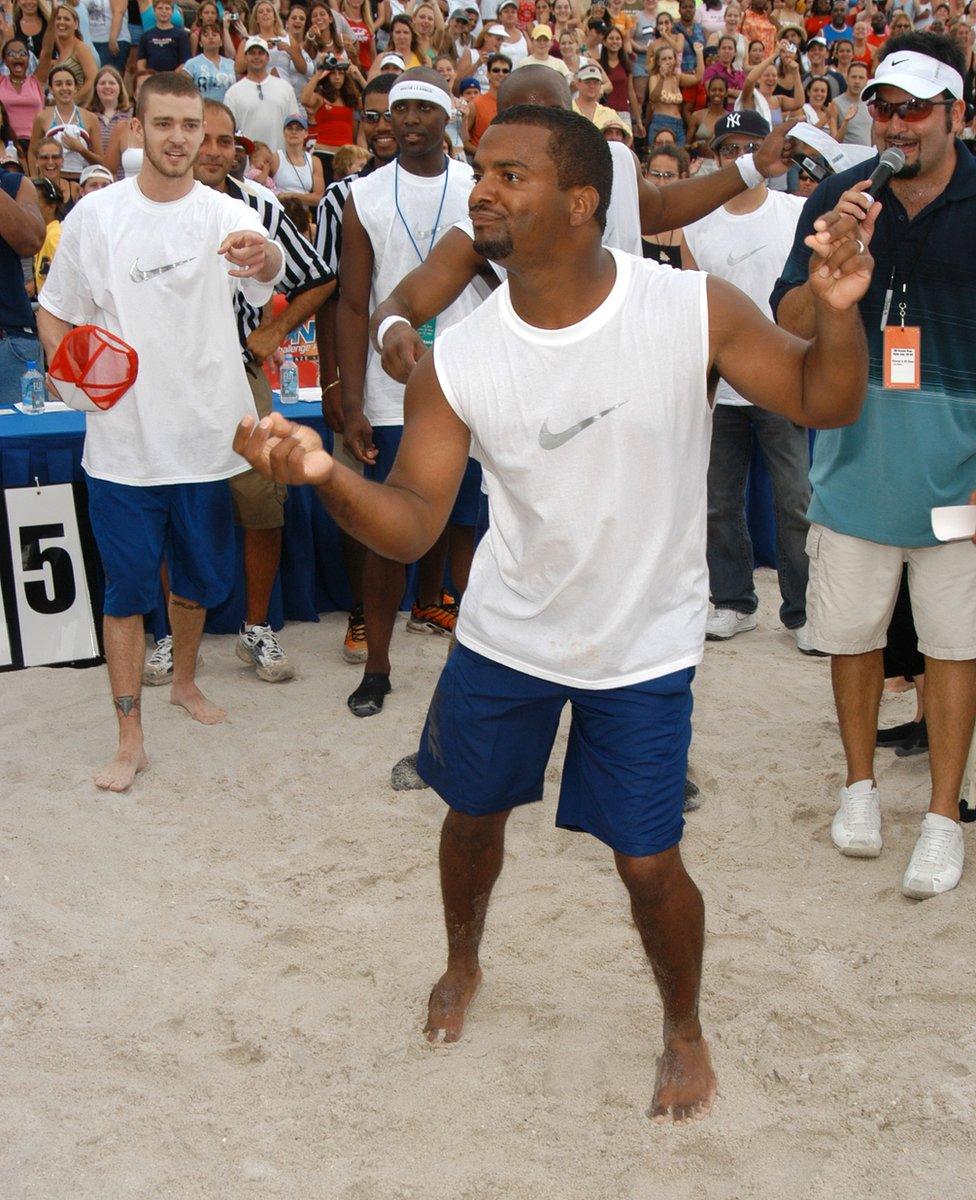
Ribeiro showing off his signature moves in 2003

Saskia Florence, of the US Copyright Office's Performing Arts Division, said that the dance could not be registered because it was a "simple dance routine".
In a letter to Ribeiro's lawyer, Ms Florence wrote: "The dancer sways their hips as they step from side to side, while swinging their arms in an exaggerated manner. In the second dance step, the dancer takes two steps to each side while opening and closing their legs and their arms in unison.
"In the final step, the dancer's feet are still and they lower one hand from above their head to the middle of their chest while fluttering their fingers.
"The combination of these three dance steps is a simple routine that is not registerable as a choreographic work."
Copyright changes
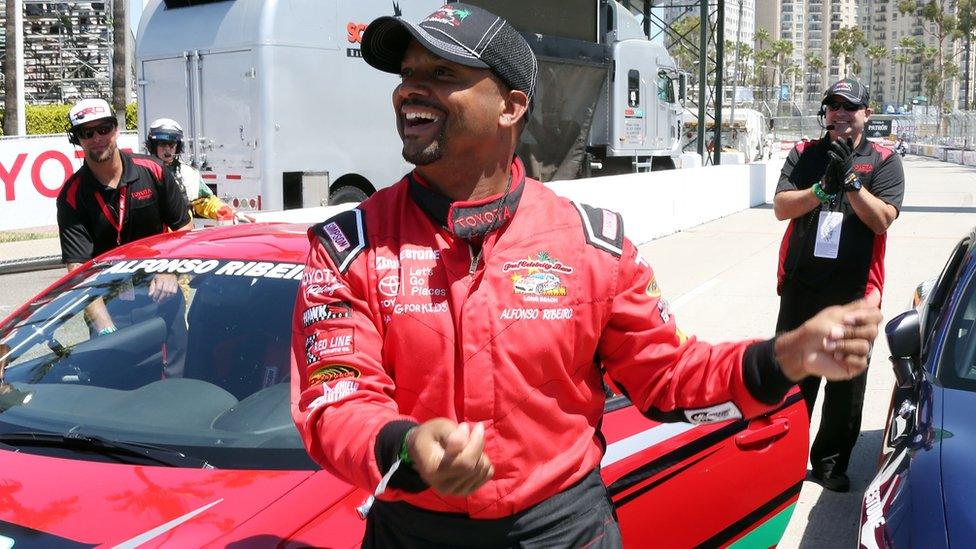
Ribeiro celebrates with the "Carlton dance", after winning a celebrity car race in 2015
Ribeiro's lawyer David Hecht said his client had dropped the case because of a change in US copyright law, but would be refiling the lawsuits.
The change means anyone with a copyright case has to wait until the Copyright Office has acted on their application before they can take legal action.
As Ribeiro took legal action against Epic and Take-Two before the decision in his copyright case, he has to withdraw it to comply with current US law.
Mr Hecht also represents the Brooklyn rapper 2 Milly, who took similar action against Epic and Take-Two in 2018, claiming the game developers misappropriated the Milly Rock, a dance move he created for a 2014 music video.
Mr Hecht told the BBC that all their cases relating Fortnite and NBA 2K would be withdrawn and refiled.

Follow us on Facebook, external, on Twitter @BBCNewsEnts, external, or on Instagram at bbcnewsents, external. If you have a story suggestion email entertainment.news@bbc.co.uk, external.
- Published18 December 2018

- Published28 March 2017
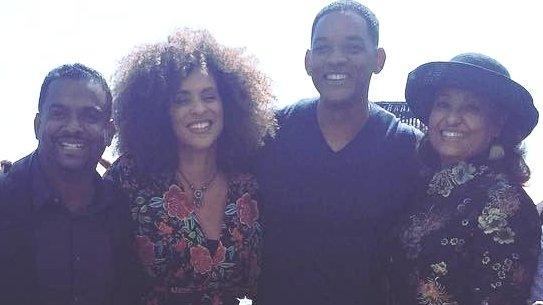
- Published2 January 2014
